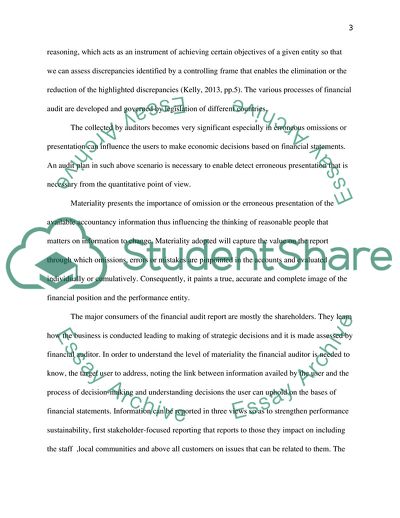Cite this document
(Materiality in Auditing Assignment Example | Topics and Well Written Essays - 2000 words, n.d.)
Materiality in Auditing Assignment Example | Topics and Well Written Essays - 2000 words. https://studentshare.org/finance-accounting/1854251-materiality-in-auditing
Materiality in Auditing Assignment Example | Topics and Well Written Essays - 2000 words. https://studentshare.org/finance-accounting/1854251-materiality-in-auditing
(Materiality in Auditing Assignment Example | Topics and Well Written Essays - 2000 Words)
Materiality in Auditing Assignment Example | Topics and Well Written Essays - 2000 Words. https://studentshare.org/finance-accounting/1854251-materiality-in-auditing.
Materiality in Auditing Assignment Example | Topics and Well Written Essays - 2000 Words. https://studentshare.org/finance-accounting/1854251-materiality-in-auditing.
“Materiality in Auditing Assignment Example | Topics and Well Written Essays - 2000 Words”. https://studentshare.org/finance-accounting/1854251-materiality-in-auditing.


